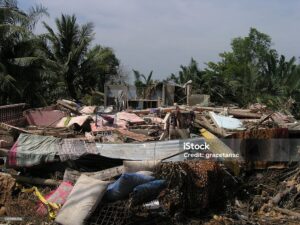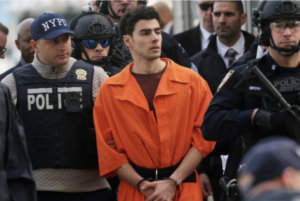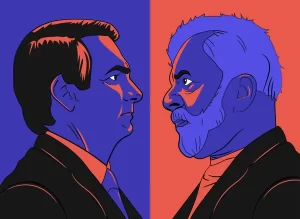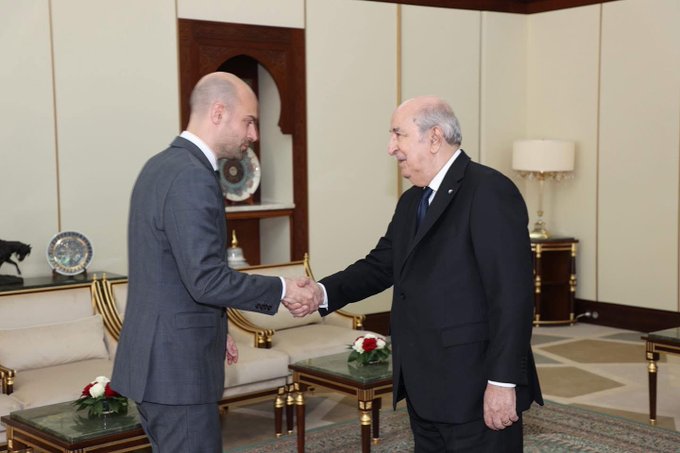Tensions Over Western Sahara
The catalyst for the crisis between France and Algeria began in July 2024, when President Emmanuel Macron recognized Morocco’s sovereignty over Western Sahara. A few months earlier, the former Minister for Europe and Foreign Affairs, Stéphane Séjourné, had already declared, « Morocco can count on France’s clear and consistent support » for its autonomy plan. He added, « We have said it, and I repeat today, perhaps with more strength: it is time to move forward. I will personally ensure this. »
This decision broke from France’s traditional stance. Indeed, before, it had considered the territory to have an undefined status. This was also the analysis of the United Nations. The region, a former Spanish colony, has been claimed by independence movements led by the Polisario Front, supported by Algeria, for over 50 years. However, approximately 80% of the Western Sahara remains under Moroccan control.
The French government has expressed its desire to assist in the development of the region by supporting Morocco’s efforts. Following this, the minister proposed a « cutting-edge partnership » with Morocco, focusing on renewable energy, training, and the development of innovative industrial ecosystems.
Immigration in France
In France, Algerian nationals represent the largest foreign community. In 2024, there were 649,991 Algerians residing in France. On March 19th, 2025, during an interview on Sud Radio, French Minister of the Interior, Bruno Retailleau, declared, « We do not want war with Algeria; it is Algeria that is attacking us. » He notably called for the « re-evaluation » of consular facilities granted to holders of diplomatic passports.
Algeria rejected a list of Algerians proposed for expulsion by France in recent days, reiterating its « categorical rejection of threats, intimidation attempts, injunctions, and ultimatums » from France. Algeria’s refusal to accept several of its nationals who were under an obligation to leave French territory aggravated the situation. Prime Minister François Bayrou threatened to « denounce » the 1968 agreement. This agreement gives Algerians in France a special status regarding movement, residence, and employment. He issued a six-week ultimatum for Algeria to take back its illegal residents. However, in early March, President Macron appeared to seek a de-escalation, stating he was « in favor not of denouncing but of renegotiating » the agreement.
Controversies Surrounding Influencers
In January 2025, Algerian influencer Doualemn was arrested in Montpellier after sharing a video calling for violence. He was expelled to Algeria, but the Algerian authorities refused to accept him and sent him back to France. French immigration services placed him on a flight to Algiers. However, Algeria barred his entry, claiming he was banned from their territory. He was eventually returned to France that evening, according to the French Ministry of the Interior. This refusal led French Interior Minister Bruno Retailleau to accuse Algeria of seeking to « humiliate France. » He stated, « I want to express my astonishment. We have reached a very worrying threshold with Algeria. Algeria seeks to humiliate France. »
Foreign Minister Jean-Noël Barrot also declared that France would have « no choice but to respond » if Algeria continued this escalation. Among the « levers we could activate » were « visas, development aid, or other areas of cooperation, » he elaborated on LCI, expressing his « astonishment » that the Algerian authorities had « refused to take back one of their nationals, » whose case is now « judicialized » in France.
Moreover, other Algerian influencers have been arrested in France for hateful speech or calls for violence on social media. For example, Sofia Benlemmane, a Franco-Algerian influencer, was tried in France for threatening to kill opponents of President Abdelmadjid Tebboune.
Incarceration of Boualem Sansal
Boualem Sansal, an 80-year-old Franco-Algerian writer, was arrested on November 16, 2024, at Algiers airport upon his arrival from Paris. He was accused of threatening state security, particularly for controversial statements regarding the borders between Algeria and Morocco. Detained since then, he was sentenced on March 27, 2025, to five years in prison and a fine of 500,000 dinars (approximately 3,500 euros) by the Dar El Beïda court in Algiers.
This case further exacerbated diplomatic tensions between France and Algeria. President Emmanuel Macron expressed concern about Sansal’s health, calling for a swift resolution of the situation. Additionally, the European Parliament adopted a resolution on January 23, 2025, calling for his immediate release. This was criticized by Algerian authorities as interference in their internal affairs.
Several human rights organizations, including Amnesty International and Reporters Without Borders, also called for his release. They highlighted the violations of free speech in Algeria.
A Will to Resolve These Tensions
« The tensions between France and Algeria, which we did not cause, are not in anyone’s interest, neither France’s nor Algeria’s. We want to resolve them with firmness and without any weakness, » declared Jean-Noël Barrot, Minister for Europe and Foreign Affairs, before the National Assembly. He emphasized that « dialogue and firmness are in no way contradictory. »
« The exchange between the President of the Republic (Emmanuel Macron) and his Algerian counterpart (Abdelmadjid Tebboune) has opened a diplomatic space that can allow us to move toward resolving the crisis, » he added.
A Step Toward Reconciliation
On March 31, 2025, during Eid al-Fitr, Presidents Emmanuel Macron and Abdelmadjid Tebboune held a phone call. During this conversation, President Macron extended his Eid greetings to President Tebboune and the Algerian people. The two leaders seized the opportunity to discuss the state of bilateral relations and the accumulated tensions of recent months. They agreed to renew cooperation in various areas, including security and migration issues. Furthermore, they decided to schedule a future meeting to strengthen the ties between the two countries.
This was a significant step toward reconciliation, as it involved both heads of state. Emmanuel Macron’s handling of the Algerian dossier aligns with a request made by President Tebboune on two occasions.
The willingness to engage in dialogue, along with the desire to renew cooperation in key areas, offers hope for resolving these longstanding disputes. However, the path to lasting peace and mutual understanding will require continued dialogue, mutual respect, and a commitment to addressing the underlying issues that have strained the bilateral relationship.










